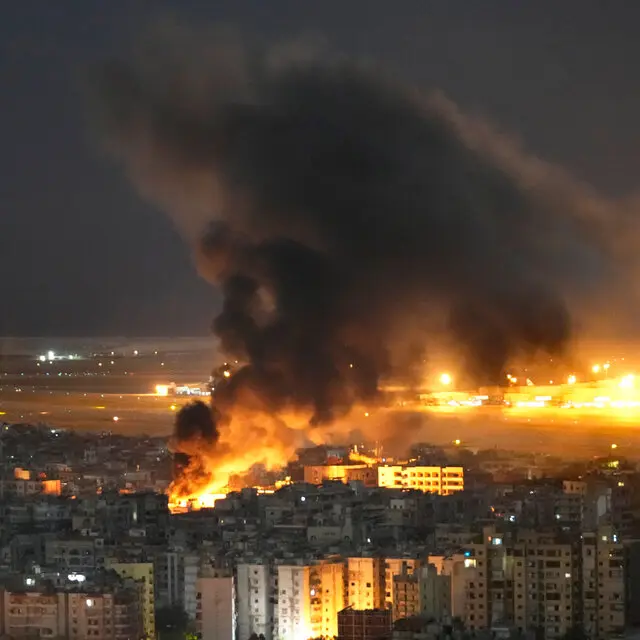Hundreds of Beirut residents fled their homes late Sunday as multiple explosions echoed across the Lebanese capital, following Israel’s warning of impending attacks on sites linked to Hezbollah’s financial operations. The incident marks a significant escalation in the ongoing conflict between Israel and the Iran-backed militant group.

Reuters witnesses reported at least 10 blasts, with dense plumes of black smoke visible across the city. Eyewitnesses, speaking on condition of anonymity, described a building in the Chiyah neighborhood of southern Beirut reduced to rubble. The area had been largely evacuated prior to the explosion, resulting in no immediate reports of casualties.
Earlier, the Israeli military had issued a statement on social media platform X, warning of imminent attacks on infrastructure belonging to the Hezbollah-affiliated Al-Qard Al-Hassan Association, urging people to evacuate immediately. This financial organization, which the U.S. claims is used by Hezbollah to manage its finances, operates over 30 branches across Lebanon, including 15 in densely populated areas of central Beirut and its suburbs.

The attacks come as part of Israel’s intensified military campaigns in both Gaza and Lebanon, following the recent killing of Hamas leader Yahya Sinwar. Israeli officials, diplomats, and regional sources suggest that with U.S. elections approaching, Israel is seeking to secure its borders and prevent its rivals from regrouping through these military operations.
In addition to the Beirut strikes, Israel reported hitting Hezbollah’s intelligence headquarters and an underground weapons workshop in the city earlier on Sunday. The Israeli military also claimed to have killed three Hezbollah commanders in separate strikes.
The conflict has taken a heavy toll on both sides. In Gaza, Palestinian officials report over 42,500 deaths and widespread displacement of the territory’s 2.3 million residents due to Israel’s military response. In Lebanon, officials estimate more than 2,400 people have been killed and over 1.2 million displaced in the past year of fighting.

As tensions continue to escalate, the international community watches closely, with concerns growing about the potential for further regional destabilization. The targeting of financial infrastructure marks a new phase in the conflict, potentially impacting Hezbollah’s ability to fund its operations both during and after the current hostilities.
This latest development underscores the complex and volatile nature of the Middle East conflict, with implications extending far beyond the immediate region. As both sides vow to continue fighting, the prospects for a peaceful resolution seem increasingly distant, raising fears of a protracted and potentially expanding conflict.



